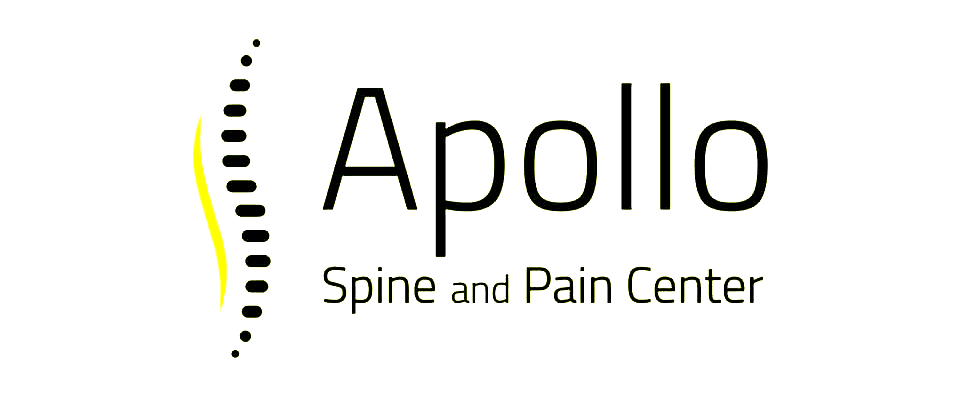Lifestyle Adjustments to Enhance Your Pain Management Plan
Effective pain management goes beyond medical treatments, and incorporating positive lifestyle adjustments can significantly impact your overall wellness and pain relief. At Apollo Spine and Pain Center, we believe that a holistic approach yields optimal results. This article will explore ten evidence-backed lifestyle changes that can help maximize the effectiveness of your pain management plan.
From maintaining a healthy diet to mastering relaxation techniques, these practical tips will aid you in achieving a more comfortable and fulfilling life. Combining these lifestyle adjustments with our specialized services allows for a synergistic effect, leading to a more comprehensive and successful pain management strategy. Read on to find practical ways to take control of your pain management journey and enhance your quality of life.
Prioritize Healthy Eating
1. Anti-Inflammatory Foods: Incorporate more fruits, vegetables, lean proteins, and whole grains into your diet, as they possess anti-inflammatory properties that can reduce pain. Foods rich in omega-3 fatty acids, such as fatty fish and walnuts, can also help decrease inflammation.
2. Stay Hydrated: Proper hydration is vital for overall health and can help manage pain, particularly for people with conditions like arthritis and fibromyalgia. Aim to drink at least eight glasses of water daily.
3. Limit Processed Foods and Sugars: Excessive consumption of processed foods, sugars, and unhealthy fats can trigger inflammation in the body, worsening pain. Limit or avoid these items in your diet.
Engage in Regular Physical Activity
1. Exercise: Engaging in regular physical activity can help manage pain by increasing endorphins, reducing inflammation, and promoting overall well-being. Consult your pain management specialist for suitable exercises tailored to your specific condition.
2. Walking: Walking is a low-impact activity that can help improve circulation, maintain joint mobility, and alleviate pain. Aim for at least 30 minutes of brisk walking daily or break it up into shorter sessions throughout the day.
3. Stretching and Flexibility: Incorporating stretches and flexibility exercises can help ease muscle tension, improve range of motion, and reduce pain. A daily stretch routine or activities like yoga and tai chi can be beneficial.
Manage Stress and Anxiety
1. Mindfulness and Meditation: Regular mindfulness practice and meditation can help reduce stress-related pain by teaching you to focus on the present moment, reducing negative emotional responses to pain.
2. Deep Breathing Techniques: Deep breathing exercises can help trigger relaxation responses, relax tight muscles, and alleviate pain. Experiment with different deep-breathing techniques to find the one that works best for you.
3. Cognitive Behavioral Therapy (CBT): CBT is a form of psychotherapy that helps you change negative thought patterns related to pain, ultimately improving pain management. Consider seeking the guidance of a mental health professional to practice CBT.
Prioritize Sleep and Rest
1. Establish a Sleep Routine: Maintaining a consistent sleep schedule is crucial for managing pain, as lack of sleep can exacerbate discomfort. Aim for 7-9 hours of sleep per night, and try to stick to a regular bedtime and wakeup time.
2. Create a Sleep-Friendly Environment: A dark, quiet, and comfortable sleeping space can set the stage for restorative rest. Consider using blackout shades, white noise machines, and high-quality pillows to optimize your sleep environment.
3. Limit Screen Time Before Bed: The blue light emitted from phones, tablets, and computers can interfere with the production of the sleep hormone melatonin, making it more difficult to fall asleep. Limit screen time an hour before bedtime to promote better rest.
Stay Connected with Support Systems
1. Social Support: Maintaining strong social connections with family, friends, and support groups can provide emotional support and practical help for navigating the challenges of living with chronic pain.
2. Join a Support Group: Attending support group meetings can help you connect with others who are facing similar challenges, providing a sense of understanding and shared experience. In-person and online support groups can offer valuable advice, encouragement, and resources.
3. Collaborate with Healthcare Professionals: Maintain open communication with your healthcare team, including your pain management specialist, primary care physician, and other providers, to ensure a cohesive and comprehensive approach to your pain management plan.
Utilize Complementary Therapies
1. Massage Therapy: Massage therapy can help alleviate pain by increasing circulation, releasing muscle tension, and promoting relaxation. Consult your healthcare provider to determine if massage would be a suitable addition to your pain management plan.
2. Acupuncture: A form of traditional Chinese medicine, acupuncture involves insertions of thin needles into specific points on the body to stimulate self-healing mechanisms. Acupuncture can help reduce pain by interrupting pain signals to the brain and promoting the release of endorphins.
3. Heat and Cold Therapy: Applying heat or cold to the affected area can help manage pain. Heat therapy can provide relief for stiff muscles and joints, while cold therapy can help reduce inflammation and swelling.
4. TENS (Transcutaneous Electrical Nerve Stimulation) Units: TENS units deliver electrical stimulation to the nerves through adhesive electrodes placed on the skin, which can help block pain signals from reaching the brain. Discuss with your pain management specialist if incorporating a TENS unit into your routine would aid your pain relief.
Take Charge of Your Pain Relief Journey
These lifestyle adjustments can significantly enhance your pain management experience when used in harmony with the specialized services provided by Apollo Spine and Pain Center. A multi-dimensional approach centered around healthy eating, physical activity, stress management, sleep, social support, and complementary therapies is pivotal in promoting a more comfortable and fulfilling life.
Ready to start taking control of your
pain management
journey? Schedule a consultation with our expert specialists at Apollo Spine and Pain Center today. Together, we will create a personalized pain management plan incorporating evidence-based practices and tailored lifestyle recommendations to fit your unique needs. Don't let chronic pain dictate your life — embrace the power of a comprehensive approach, and get back to enjoying the activities you love.












